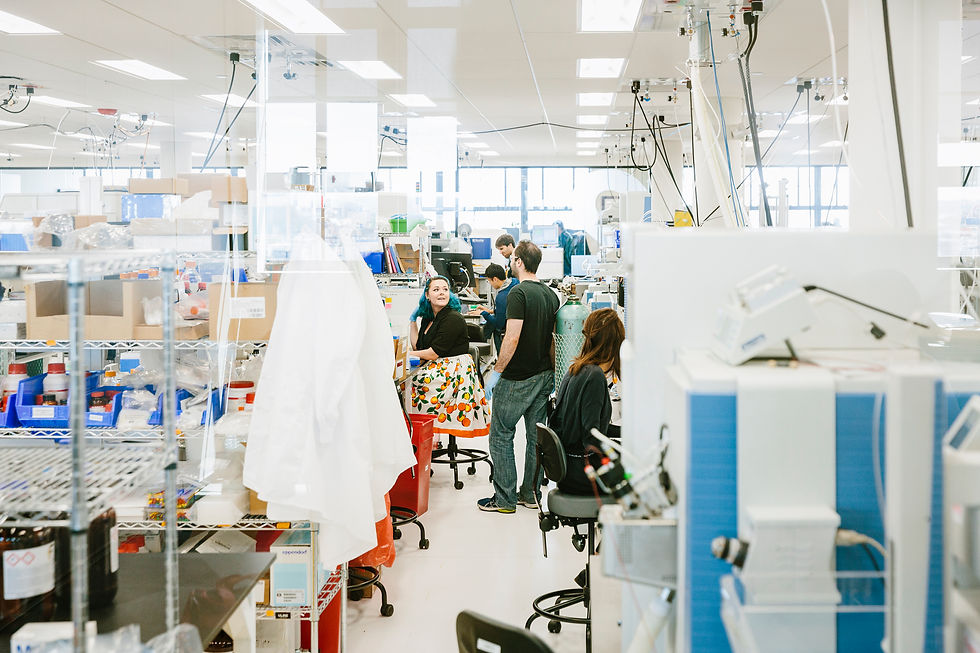Fertilizer emissions more than aviation?
- Kartik Verma

- Mar 31, 2022
- 4 min read
Updated: May 26, 2022

Did you know that the use of synthetic fertilizer for crops accounts for 4.1% of all greenhouse gas emissions? For reference, aviation emissions account for approximately 2% of all GHG emissions. Today we look at how a startup is working to improve fertilizer production and climate action at the largest fertilizer companies.
What to expect today:
Joyn Bio - DNA sequencing for improved fertilizer use

Boston based startup Joyn Bio is a joint venture founded by Bayer Crop Science and Ginkgo Bioworks developing probiotics for plants to provide growers with next generation solutions to their biggest challenges. Joyn Bio’s first area of focus will be on engineering microbes that provide cereal crops with their nitrogen needs to reduce agriculture’s reliance on nitrogen fertilizers and its environmental impact. The company, founded in 2017 has already raised $200m to date.
Tell me more about about fertilizer emissions
Natural crops require ammonia or nitrogen in the soil to grow the crops and while nature has its methods to replenish the nitrogen in the soil; overuse of fertilizers and degradation of topsoil has meant that modern agriculture relies heavily on synthetic fertilizers. When synthetic fertilizer is used on soil, it releases a compound called Nitrous Oxide which is a greenhouse gas and accounts for nearly 4.1% of GHG emissions.
What is Joyn Bio’s idea?
Joyn Bio has been studying crops such as legumes and soybeans which naturally replenish the nitrogen from the air and convert it to ammonia in the soil. Joyn aims to identify the DNA sequence responsible for those actions. Once the DNA strand has been identified, Joyn Bio plans to replicate that strand in a microbe and transfer it to new seeds or the soil where crops are grown so that nature can replenish the nitrogen content in the soil thus eliminating the need of synthetic fertilizers.
The company is currently testing its product on corn in the American Midwest and plans to launch in the next 3-4 years. Pivot Bio, a similar company has already launched the product and says that farmers use its products in 1mn acres currently.
Source:Joyn Bio, Climate Tech VC, AFN
Climate goals of Nutrien - world's largest fertilizer company

Nutrien, a company based in Canada, is the world’s largest fertilizer company by market cap. A majority of synthetic nitrogen fertilizer is produced using the Haber-Bosch process, which captures nitrogen from the air and combines it with hydrogen derived from burning natural gas to produce ammonia. The H-B fertilizer production process alone makes up 1.4% of all global GHG emissions. However, if you also factor in the emissions from distribution and (mis)application of synthetic fertilizer, arguably almost 7% of all global GHG emissions can be traced to the synthetic fertilizer supply chain.
With ~300 massive plants across the globe, nitrogen fertilizer is distributed through a centralized supply chain incurring significant transportation and storage costs. About half of the nitrogen fertilizer applied is lost as runoff or N2O, a greenhouse gas with 300x the global warming potential of CO2.
Understanding Nutrien’s sources of emissions

Scope 1: Emissions occur during nitrogen fertilizer production
Scope 2: Emissions from off-site generation of purchased electricity, steam and heat
Scope 3: Emissions are released when nitrogen is applied to crops but emissions are sequestered into soils as crops grow
Here is a primer of Scope 1,2 and 3 emissions.
Nutrien’s climate goals
Nutrien plans to achieve at least a 30 percent reduction in GHG emissions (Scope 1 + 2) per tonne of products produced from a baseline year of 2018 by 2030. To achieve their 30 percent operational emission intensity target from the 2018 baseline, Nutrien estimates that the total capital investment requirements will be in the range of $500 million to $700 million by 2030. For reference, the company has an EBITDA of $6.6bn in the last 12 months (in fairness, 2021 was a phenomenal year for them).
We also looked at climate goals of Nutrien’s competitors and two of its biggest competitors WES Farmers and Saudi Arabia Fertilizer Company
WES Farmers publishes its scope 1 and scope 2 emissions but does not have a defined target and simply states that its “ambition is to have emissions per unit less than its industry peers”
Saudi Arabia Fertilizer Company does not publish emission data and has not committed to any targets publicly
Source: Sustainability at Nutrien, Climate Tech VC
Our take
Agriculture and food as an industry seems to be lagging far behind when it comes to tackling climate action. We saw this in McDonald’s as well when companies use intensity metrics to hide the fact that their emissions are actually declining. However at least in Nutrien’s case their overall emissions also seem to be coming down in spite of increasing revenues which is a good sign. Yet we would love to see them commit to absolute targets and also include scope 3 emissions targets in their goals. Currently Nutrien does not publish Scope 3 emission data.





Comments